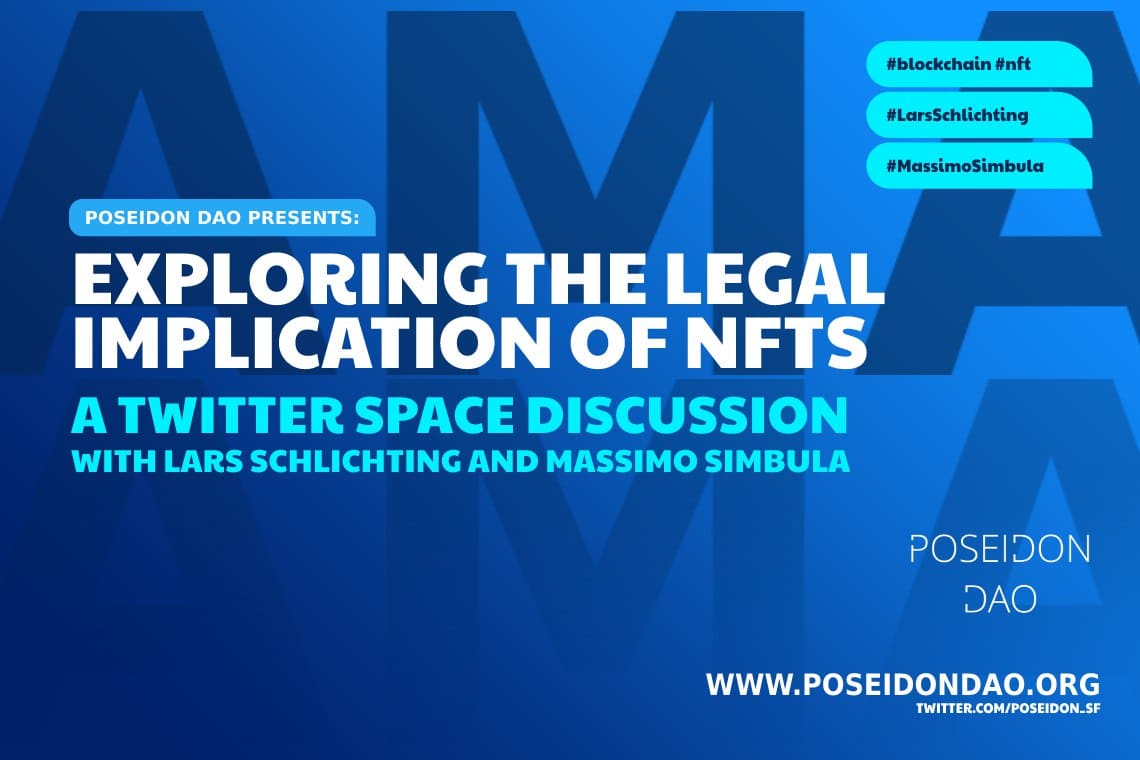On 20 March, Poseidon DAO hosted attorneys Massimo Simbula and Lars Schlichting in its space who addressed various legal issues that go along with the world of crypto, with a focus on the NFT sector.
What was discussed during the most recent Poseidon DAO AMA?
The discussion began by talking about differences in legislation globally and their impact on the entire industry.
While Europe is moving in regulating and giving guidelines in a crypto-friendly manner, the United States has a less proactive approach that results, as in the case of Kraken, in forced disruptions of some platform services.
Indeed, the two lawyers agreed that in order for the blockchain industry to thrive, it is necessary to have the most current and comprehensive regulation to understand within what limits to move, without having to run for cover after investing time and money on a particular product.
With regard to NFTs in detail, intellectual property and its protection was discussed
Experts agreed that very little has in fact changed in legal matters with respect to intellectual property in the traditional art world, and it is always very complex and expensive to protect intellectual property globally as different countries have different regulations on the subject.
There have been some facilitations with NFTs in the field of intellectual property, as in the case of the company Yuga Labs, creator of the Bored Ape Yacht Club and others, which has decided to assign, along with its NFTs, the rights to the images to those who purchase the non-fungible tokens.
This process, extremely time-consuming in the traditional art industry, was made immediate with NFTs.
There has also been a focus on the tax treatment of NFT artists.
In fact, in the case of art 3.0, it is unlikely that an invoice will be issued concurrently with the sale of a work since in most cases sales take place on decentralized platforms.
However, it turns out to be necessary for artists to be able to equally prepare a tax return and thus keep track of the different transactions and try to have as many supporting documents as possible.
Regarding Italian taxation, Massimo Simbula emphasized that professionalism of the artist’s trade is also important, as well as the risk that artists run of being equated with financial promoters, should they advertise NFTs in certain ways.
On the other hand, talking about the VAT related to the sale of works, Lars Schlichting explained the way Switzerland decided to go about it: as they could not ascertain whether the buyer is Swiss or foreign, it was decided to consider the traffic of the platform.
For example, if it is 1% generated from Switzerland, then 1% of the works sold are considered to have been sold to people residing in Switzerland. To this 1% the tax payer decided to add an additional 3% taking into account the high Swiss activity in cryptocurrency.
There was finally a discussion about the relationship between transparency and privacy. While total transparency is desired by different states, in contrast, the market seems to reward privacy.
In the near future, according to advocates, it will be possible to link the digital identity to the wallet on the blockchain, but nonetheless, a balance will be sought in the trade-off between transparency and privacy.



